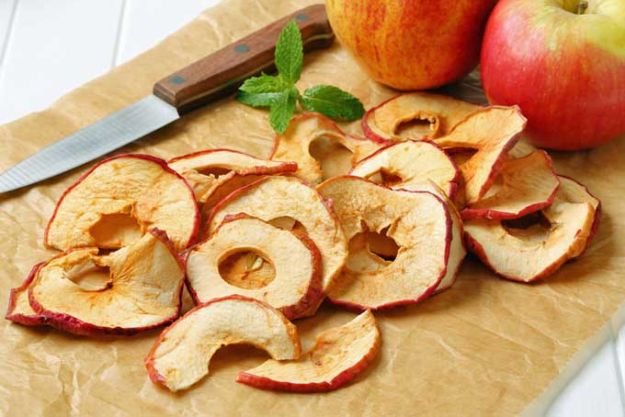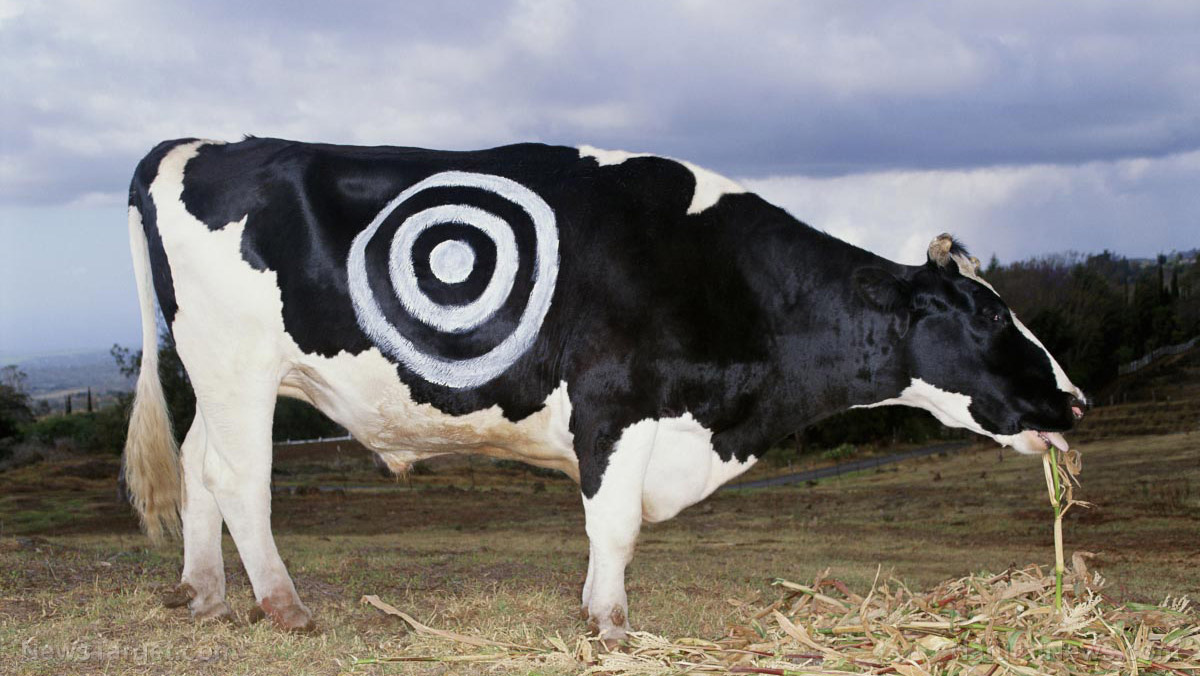
Advertisement
With a flourishing home garden, you might often find yourself with excess fruits and vegetables. If there isn’t enough space left in your kitchen or fridge, you can use up excess produce by using food preservation techniques like canning or freeze-drying.
This way, you can extend the shelf life of various fruits and vegetables while also adding more supplies to your survival stockpile. (h/t to Tactical.com)
Canning
Canning, one of the oldest methods, is also one of the best food preservation methods. Many homesteaders canned their produce and meats to ensure that their supplies lasted during winter.
There are two canning techniques: Water bath canning and pressure canning.
Water bath canning is ideal for mostly acidic food like fruits, jams and pickles. This technique involves submerging sealed jars of food in boiling water.
The boiling process creates a vacuum seal inside the jar, locking in the freshness of the canned food. If you want to try water bath canning, properly sterilize all your materials and supplies.
The pressure canning method is best for meat and other low-acid vegetables such as asparagus, beans, beets, carrots, corn (cream style or whole), peas, potatoes, pumpkin, spinach and winter squash.
Pressure canning is similar to water bath canning, but the former uses a higher temperature (at least 240 F) to preserve food. A special pressure canner is ideal for this method.
Curing
Curing is a chemical food preservation method using ingredients like nitrates, salt, or sugar to draw water from meat. The low water content helps prevent the growth of bacteria and extends the meat’s shelf life for as long as four years.
Curing uses cheap techniques like salting or corning. Salt can be added as a solid (salt pellets are called corns, used for corning) or as a liquid in the form of brine.
Nitrite or nitrate salts inhibit the growth of bacteria like Clostridium botulinum, E. coli and salmonella. They’re responsible for the pinkish color of cured meats.
Sugar and smoke curing are also used during the preservation process and to add flavor to the meats. Most hams and sausages use sugar and smoke curing.
Dehydration
Dehydration is a food preservation method that takes the water out of food because moisture allows the growth of microorganisms that cause spoilage. Dehydrated food has a longer shelf life.
Preserving food through dehydration includes traditional sun drying or oven drying.
Modern dehydration techniques include using a dehydrator. Just cut food into thin slices, place them in the dehydrator and wait for the process to finish. Store dehydrated food in airtight jars or pouches for best results.
If done and stored properly with a vacuum seal, dehydrated food can last for weeks or even months. You can dehydrate fresh produce like fruits, vegetables and meat.
Fermentation
With fermentation, fresh produce can last for years by turning them into kimchi, pickles, or sauerkraut.
Fermentation converts the carbs and sugars in food into alcohol, which acts as a natural preservative. Fermenting food enhances its shelf life, improves its flavor and increases its nutritional value because of the probiotics made in the process.
You can use excess cabbage to make sauerkraut. First, chop some cabbage, then put it in a mason jar. Submerge the chopped cabbage in brine. The cabbage will then undergo lacto-fermentation.
During this process, the “good” bacteria (lactobacilli) on the surface of the cabbage convert the sugars into lactic acid, which then acts as a natural preservative. When the fermentation process is done, you can store sauerkraut in a jar at room temperature for several months. (Related: Why being prepared is a game-changer.)
Freeze-drying
Freeze-drying is also known as lyophilization or cryodesiccation. While the names sound intimidating the process itself is simple.
Freeze-drying is a method of food preservation that involves freezing the food and then lowering the surrounding pressure to remove all the water through sublimation. With this process, food is frozen and then dried fast. The resulting food product contains very little moisture, at least one to four percent.
Because this removes most of the water on the food, microorganisms won’t have a chance to grow and cause spoilage. This is why freeze-dried products can last for at least 25 years.
Freeze-drying also retains most of the nutritional value of the food, along with its taste and smell. To reconstitute freeze-dried food, add hot water.
Freeze-dried food like fruits and vegetables are sold in packets, #10 cans or big buckets for long-term use. Buying freeze-dried food is a great option if you don’t have the time to process food at home yourself, or if you want to spend time on other food preservation techniques instead.
Where to get more supplies for your food stockpile
The Health Ranger Store is here to help you prepare before SHTF and build your stockpile.
That’s why we’re proud to introduce a variety of freeze-dried fruits and vegetables such as Freeze-Dried Organic Apple, Freeze-Dried Organic Banana and Freeze-Dried Organic Whole Corn.
The Brighteon Store wants to help you experience the full nutritional benefits of organic apples, which is why we’re bringing you freeze-dried, organic, diced apples in long-term storable #10 cans.
Our Health Ranger Select Freeze-Dried Organic Diced Apples are made from fresh, high-quality apples that are grown under strict organic standards without the use of synthetic pesticides. Our freeze-dried apple pieces are non-GMO, certified Kosher and organic and are thoroughly lab-tested for glyphosate, heavy metals and microbiology. Eat them as a snack, sprinkle them onto cereals, or rehydrate them by soaking them in water.
You can also stock up on bananas, which are known for their tasty flavor, natural sweetness and rich nutrient content. However, like many other fruits, bananas don’t stay fresh for very long. To extend the shelf life of fresh bananas, they can be carefully freeze-dried to retain maximum nutrition.
Loaded with potassium, vitamin C and a variety of important nutrients, our premium Health Ranger Select Freeze-Dried Organic Diced Bananas allow you to savor the delicious flavor and nutritional benefits of fresh bananas all year round.
Sourced from premium banana plants grown by our trusted suppliers under strict organic standards, these diced bananas undergo a careful freeze-drying process that preserves their original taste, texture and nutrients.
Health Ranger Select Freeze-Dried Organic Diced Bananas are non-GMO, non-China, and certified Kosher and organic. They have also undergone meticulous lab testing for glyphosate, heavy metals and microbiology.
Lastly, you can try our Health Ranger Select Organic Freeze-Dried Whole Corn. A versatile and convenient addition to a wide variety of dishes, corn is a great source of dietary fiber, protein, potassium and other nutrients.
This product has undergone a careful freeze-drying process to preserve the original taste, texture and nutrient content of fresh whole corn without the use of any synthetic additives, preservatives, or fillers.
Our Health Ranger Select Organic Freeze-Dried Whole Corn is grown in the USA under strict organic standards. It is also non-GMO, non-China, certified Kosher and organic and has been meticulously lab-tested for glyphosate, heavy metals and microbiology. Rehydrate this corn by soaking it in water, or use it in soups and other recipes.
Visit FoodSupply.news for more tips on how to build your food stockpile before disaster strikes. You can also check out Health Ranger Store and Brighteon Store for more clean food supplies for your prepping needs.
Click on this link for a tasty recipe for Southwestern Quinoa Salad.
Watch the video below to learn how Organic Apples can support good health even after SHTF.
This video is from the Health Ranger Store channel on Brighteon.com.
More related stories:
Top canned foods with the longest shelf life.
The ultimate guide to foods that never spoil: Long-lasting prepping pantry staples.
6 Civil War-era foods you can still make today (recipes included).
Unlock the power of sprouting and enjoy the benefits of growing your own food.
Sources include:
Advertisements







